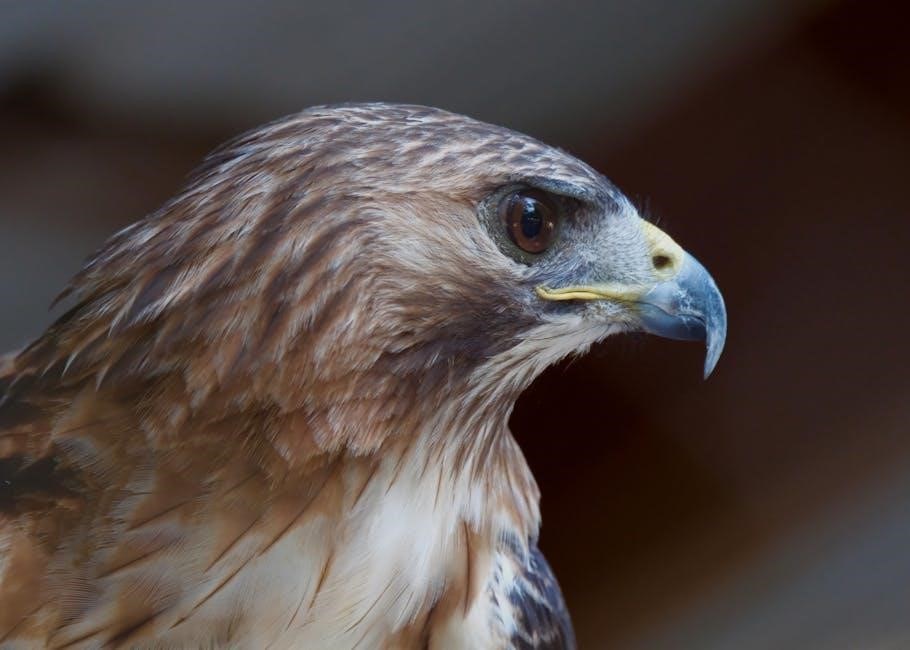Tennessee offers exceptional black bear hunting opportunities, particularly in the Appalachian Mountains. With over 16,000 bears, the state provides thrilling experiences for hunters. Guided hunts ensure success, offering expert knowledge, gear, and adherence to regulations, while promoting conservation efforts and ethical hunting practices.
Overview of Black Bear Hunting in Tennessee
Tennessee is renowned for its thriving black bear population, with over 16,000 bears roaming the state. The Appalachian Mountains, particularly East Tennessee, offer prime habitat and exceptional hunting opportunities. Hunters can pursue bears using archery, muzzleloaders, or rifles, with seasons typically running from September to January. The state’s diverse terrain, including forests and mountainous regions, provides ample chances to harvest a trophy. Tennessee’s bear hunting season attracts both locals and out-of-state hunters, making it a premier destination for this exciting sport.
Importance of Guided Hunts for a Successful Experience
Guided bear hunts in Tennessee significantly enhance the likelihood of success. Professional guides possess in-depth knowledge of bear habitats, behavior, and seasonal patterns, ensuring hunters are in the right place at the right time. They provide essential equipment, navigation, and tracking expertise, which are crucial for navigating the state’s rugged terrain. Additionally, guides ensure compliance with regulations, promote ethical hunting practices, and offer a safe, memorable experience. Their expertise is invaluable for both novice and experienced hunters seeking a trophy black bear in Tennessee’s wilderness.
Regulations and Licensing for Bear Hunting in Tennessee
Tennessee’s bear hunting regulations ensure sustainable populations and safe experiences. The Tennessee Wildlife Resources Agency oversees permits, season dates, and harvest limits for ethical hunting practices.
Season Dates and Application Process
Tennessee’s bear hunting season typically runs from early October to late December, with specific dates varying by region. The application process for permits begins in June, with opportunities for archery, muzzleloader, and rifle hunts. Hunters must apply through the Tennessee Wildlife Resources Agency, ensuring adherence to harvest limits and zone restrictions. Some areas allow hunting with dogs, while others do not. It’s crucial to check specific dates and zones to ensure compliance with state regulations for a successful and legal hunting experience.
Licensing Requirements and Permits
To hunt black bears in Tennessee, a valid hunting license is required. Non-residents must obtain a bear permit, while residents need a big game license. Youth under 16 can hunt with a free permit. Guides and outfitters often assist with permit acquisition. Additionally, hunters must follow bag limits and harvest reporting requirements. Ensuring all licensing and permits are in order is essential for compliance with state wildlife regulations and a smooth hunting experience.
Types of Bear Hunts in Tennessee
Tennessee offers various bear hunting methods, including archery, muzzleloader, and rifle hunts, along with day and night hunting opportunities, catering to different preferences and skills.
Archery, Muzzleloader, and Rifle Hunts
Tennessee’s guided bear hunts cater to diverse preferences with archery, muzzleloader, and rifle options. Archery hunts require precision and patience, ideal for experienced hunters seeking a challenge. Muzzleloader hunts offer a historical touch, using traditional firearms for a unique experience. Rifle hunts provide versatility and accuracy, suitable for both novice and seasoned hunters. These methods ensure a thrilling experience while adhering to state regulations and promoting sustainable hunting practices.
Day and Night Hunting Opportunities
Tennessee’s guided bear hunts offer both day and night hunting experiences. Day hunts allow hunters to utilize spot-and-stalk tactics, leveraging the state’s vast terrain. Night hunts often involve baiting or specialized equipment, providing unique challenges. Professional guides expertly navigate these scenarios, ensuring safety and success. Whether targeting bears during daylight or under the stars, Tennessee’s diverse hunting conditions cater to all preferences, making it a premier destination for bear hunting enthusiasts seeking varied and exciting opportunities.
Guides and Outfitters in Tennessee
Tennessee’s top-rated guides and outfitters, like Pale Horse Guide Service and Standing Rock Hunting Lodge, offer expert knowledge, trophy hunting opportunities, and southern hospitality for a memorable experience.
Profiles of Top Outfitters and Their Services
Pale Horse Guide Service, led by experienced outfitter Ben Jones, specializes in trophy bear hunts with archery, muzzleloader, and rifle options. Standing Rock Hunting Lodge combines world-class bear hunting with southern hospitality, offering all-inclusive packages. Caryonah Hunting Lodge provides luxury accommodations and guided hunts, while Goodman Ranch emphasizes personalized experiences with seasoned guides. These outfitters ensure a seamless and memorable hunting adventure, catering to both novice and seasoned hunters in Tennessee’s pristine wilderness;
What to Expect from a Professional Guide
A professional guide offers expert tracking, pre-scouted locations, and personalized strategies to maximize hunting success. They provide gear recommendations, safety briefings, and hands-on assistance, ensuring a seamless experience. Guides also handle logistics, including permits and field dressing, allowing hunters to focus solely on the hunt. Their deep knowledge of Tennessee’s terrain and bear behavior ensures a thrilling and productive adventure, tailored to skill levels from novice to experienced hunters.

Cost of Guided Bear Hunts in Tennessee
Guided bear hunts in Tennessee typically range from $1,500 to $5,000, depending on services and duration. Most packages include lodging, meals, and expert guidance for a seamless experience.
Pricing Ranges and What’s Included
Guided bear hunts in Tennessee typically range from $1,500 to $5,000, with most packages including lodging, meals, and expert guidance. Hunts lasting 5 days often cost around $4,950, covering tags, gear, and field preparation. Some outfitters offer all-inclusive deals, while others may charge extra for additional services. Prices vary based on location, hunt duration, and exclusivity, ensuring options for both budget-conscious and trophy-focused hunters seeking a memorable experience in Tennessee’s scenic wilderness.
Factors Influencing Hunt Costs
Costs for guided bear hunts in Tennessee vary based on location, hunt duration, and included services. Remote or high-elevation areas often increase prices due to logistics. Hunt length, with longer stays costing more, and weapon type, such as archery or rifle, also impact fees. Lodging, meals, and guide expertise are key factors, with all-inclusive packages typically costing more. Seasonal demand and the reputation of outfitters further influence pricing, ensuring a range of options for hunters seeking unique experiences in Tennessee’s wilderness;

Safety and Ethics in Bear Hunting
Safety and ethics are paramount in Tennessee bear hunting. Hunters must follow strict guidelines to ensure responsible practices, respect wildlife, and maintain ecological balance while pursuing their trophies.
Safety Measures and Best Practices
Ensuring safety is crucial for a successful bear hunt in Tennessee. Hunters should always carry proper gear, including bear spray, and stay informed about weather conditions. Professional guides provide essential briefings on safety protocols and emergency procedures. Adhering to hunting laws and regulations is vital to maintain ethical practices. Hunters should also make noise while hiking to avoid surprising bears and keep campsites clean to prevent attracting wildlife. Following these guidelines ensures a safe and responsible hunting experience.
- Always carry bear spray and know how to use it.
- Stay informed about local weather and trail conditions.
- Follow all instructions from professional guides.
- Keep a clean campsite to avoid attracting wildlife.
Ethical Considerations for Hunters
Ethical hunting practices are essential for maintaining a healthy bear population and preserving Tennessee’s natural heritage. Hunters must respect wildlife, avoid wasteful practices, and ensure humane kills. It’s crucial to follow all regulations and avoid targeting bears in sensitive habitats. Professional guides emphasize fair chase and ethical behavior, promoting sustainable hunting practices. Hunters should also be mindful of their impact on the environment, leaving no trace behind. Ethical hunting ensures a balance between conservation and recreation.
- Respect wildlife and their habitats.
- Avoid wasteful practices and ensure clean kills.
- Follow all local regulations and guidelines.
- Support conservation efforts through responsible hunting.
Popular Locations for Bear Hunting in Tennessee
East Tennessee, particularly the Appalachian Mountains and Great Smoky Mountains National Park, offers prime bear hunting locations. These areas are known for their large black bear populations and high success rates.
East Tennessee’s Premier Hunting Spots
East Tennessee boasts premier hunting spots, particularly in the Appalachian Mountains and Great Smoky Mountains National Park. These regions are renowned for their dense black bear populations and challenging terrain, making them ideal for guided hunts. Standing Rock Hunting Lodge and Caryonah Hunting Lodge are top destinations, offering trophy-sized bears and expert guides. Hunters can expect high-success rates in these areas, with elevations exceeding 5,000 feet providing a unique and thrilling experience amidst Tennessee’s rugged wilderness.
Hunting Near National Parks and Wildlife Areas
Tennessee’s national parks and wildlife areas offer prime locations for guided bear hunts, with the Great Smoky Mountains National Park being a focal point. Hunting near these protected areas provides access to robust black bear populations and diverse terrain. Guides often operate near these regions, leveraging their knowledge of wildlife patterns and habitats. The proximity to national parks ensures a pristine, natural hunting environment, while professional outfitters manage logistics, ensuring a safe and successful experience for hunters of all skill levels.

Preparing for a Guided Bear Hunt
Ensure you have the necessary gear, including rifles, bows, and rugged clothing. Physical conditioning and mental preparedness are crucial for the challenging terrain and demanding hunt.
Necessary Gear and Equipment
Essential gear for a guided bear hunt includes a reliable rifle, bow, or muzzleloader, along with ammunition. Durable, weather-resistant clothing, sturdy boots, and camouflage are crucial. Bring binoculars for spotting and a rangefinder for accurate targeting. Tree stands or ground blinds may be provided by guides, but consider bringing your own. Pack a first aid kit, navigation tools, and emergency supplies. Ensure all equipment is well-maintained and suitable for Tennessee’s rugged terrain and unpredictable weather conditions.
Physical and Mental Preparation
Physical conditioning is crucial for navigating Tennessee’s rugged terrain during bear hunts. Engage in cardiovascular exercises and strength training to build endurance. Mental preparation involves focus, patience, and stress management. Hunters should practice marksmanship and familiarize themselves with gear. Guides often recommend acclimating to high elevations and unpredictable weather. A positive mindset and readiness to adapt are key to a successful and enjoyable hunting experience in Tennessee’s challenging yet rewarding environment.

Post-Hunt Activities and Services
After the hunt, guides assist with field dressing and trophy preparation. Lodges offer comfortable accommodations, meals, and opportunities to relax, making the experience complete and memorable.
Field Dressing and Trophy Preparation
Guided hunts in Tennessee often include professional field dressing and trophy preparation services. Experienced guides ensure efficient processing, from skinning to caping, preserving your bear for taxidermy. Many outfitters offer on-site taxidermy services, allowing hunters to take home a prized trophy. The process is handled with care, ensuring the bear is respectfully prepared for mounting or storage. This service enhances the overall hunting experience, providing a seamless transition from the hunt to the final trophy display.
Accommodation Options for Hunters
Tennessee offers a variety of lodging options for hunters, ranging from rustic cabins to luxury lodges. Many guided hunts include stays at fully furnished lodges, often located near prime hunting areas. Hunters can enjoy amenities like home-cooked meals, comfortable quarters, and scenic views. Some outfitters provide lakeside accommodations, combining hunting with fishing opportunities. These lodges cater to different group sizes and preferences, ensuring a comfortable stay during your bear hunting adventure in Tennessee’s wilderness.